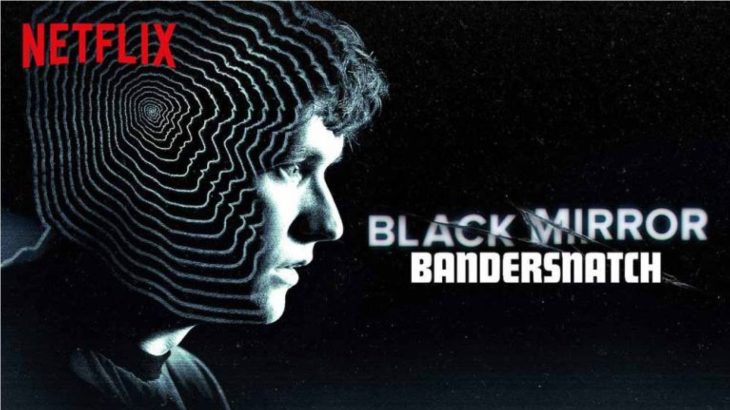Blog Post #8
Bandersnatch
Typically, when you think of interactive fiction, you'll think of choose-your-own adventure books or video games. Popular mediums like Zork, ADVENT, and Hitchhiker's Guide to the Galaxy had paved the way to integrating interactive fiction with modern technology in order to create a new storytelling medium. Netflix's Bandersnatch surpasses all expectations and exposes interactive fiction to a whole generation in a new way.
Bandersnatch is a Netflix original film branched off from the popular British TV series, Black Mirror. Black Mirror is a science fiction show with a nonlinear plot across the seasons; each episode has different characters and settings. The show tends to examine modern technologies' effects on society and episodes typically have a dark, satire-filled tone.
Bandersnatch takes place somewhere around the 1980s and follows a young man named Stefan Butler, who is a young computer programmer trying to adapt a choose-your-own-adventure book into an interactive video game. In Bandersnatch, the viewer guides Stefan through the process of creating this video game. The film was actually based on the real story of Imagine Software (which is referenced directly in the film), a British video game developing company who had gone bankrupt and financial issues.
Bandersnatch is a Netflix original film branched off from the popular British TV series, Black Mirror. Black Mirror is a science fiction show with a nonlinear plot across the seasons; each episode has different characters and settings. The show tends to examine modern technologies' effects on society and episodes typically have a dark, satire-filled tone.
Bandersnatch takes place somewhere around the 1980s and follows a young man named Stefan Butler, who is a young computer programmer trying to adapt a choose-your-own-adventure book into an interactive video game. In Bandersnatch, the viewer guides Stefan through the process of creating this video game. The film was actually based on the real story of Imagine Software (which is referenced directly in the film), a British video game developing company who had gone bankrupt and financial issues.
The choices you make in Bandersnatch can lead you into a rabbit hole of different crazy plots. Government conspiracies, time travel, LSD trips (in which side character Collin has the funniest, wackiest, and most entertaining monologue of the whole film) , and fighting Stefan's therapist (and father) in a kung-fu scene reminiscent of an old Bruce Lee movie are just a few of the wormholes this series can take you through. It's insane how far from the video game we actually get with the choices made -- yet the ending always revolves and comes back to Stefan's video game. It either was a commercial success or it wasn't -- but the ending is always tragic.
Watching and playing Black Mirror was such a wild ride. It took me on one hell of a journey and brings up an interesting, almost philosophical debate about free will. Do we really have it? Are we being controlled by a higher or more powerful being and are living in ignorant bliss about the whole situation? Now, the answer to this is completely subjective. I (almost hopefully) feel like human beings definitely have free will -- however, there could be circumstances that affect our free will. Societal pressures, ethical and moral dilemmas, disassociation, mental illnesses... etc. At the core of our being, though, I think everyone has free will. It keeps me sane to think this way, haha.
Black Mirror was a compelling journey that got me interested in interactive films as a whole. This was my first experience with a professional interactive film. As a teenager, I would stumble upon interactive youtube series' made by content creators but never something like this. Here is an example of one by popular youtuber Shane Dawson (Warning: It might be inappropriate with drug/alcohol references, sexual jokes, and cursing). I tried playing it but the links don't work anymore... but it is ten years old and YouTube has changed quite a bit since then so that might be why.
I looked into the history of interactive films and found the first ever example of an Interactive Film was in 1967 with a movie called Kinoautomat. It was a Czechoslovakian movie made for a film exhibition in Canada. At nine points during the film, it stopped and a moderator appeared on the stage. He/she would ask the audience to vote between two scenarios and the winning scenario would play for the audience. I thought this was completely revolutionary! The fact that interactive films came out before the video games/computer games we discussed in class really surprised me. I guess it makes sense since movies were a giant medium for entertainment and storytelling. It's cool to see how interactive fiction has evolved and I can't wait to see where it goes from here. Who knows? Maybe interactive films will continue to grow in popularity and might slowly become a normal genre to choose from.

Comments
Post a Comment